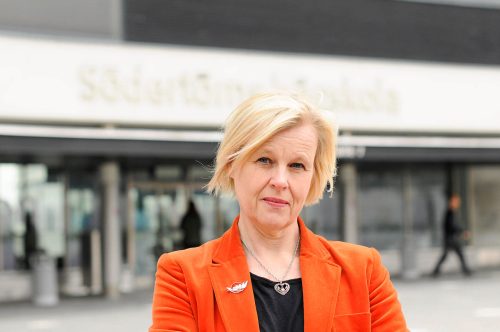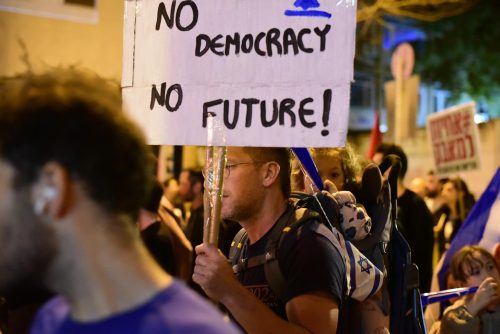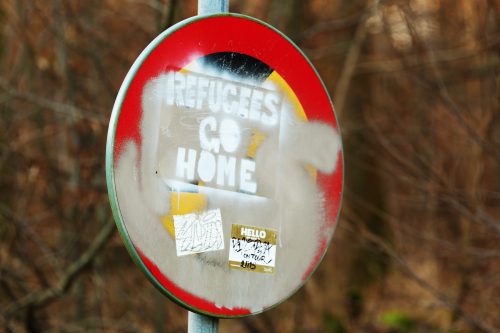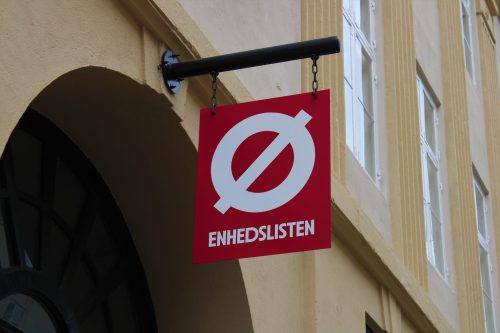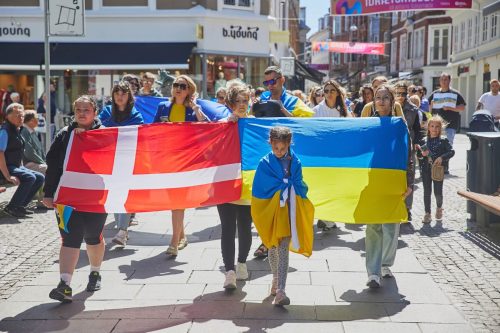Denmark
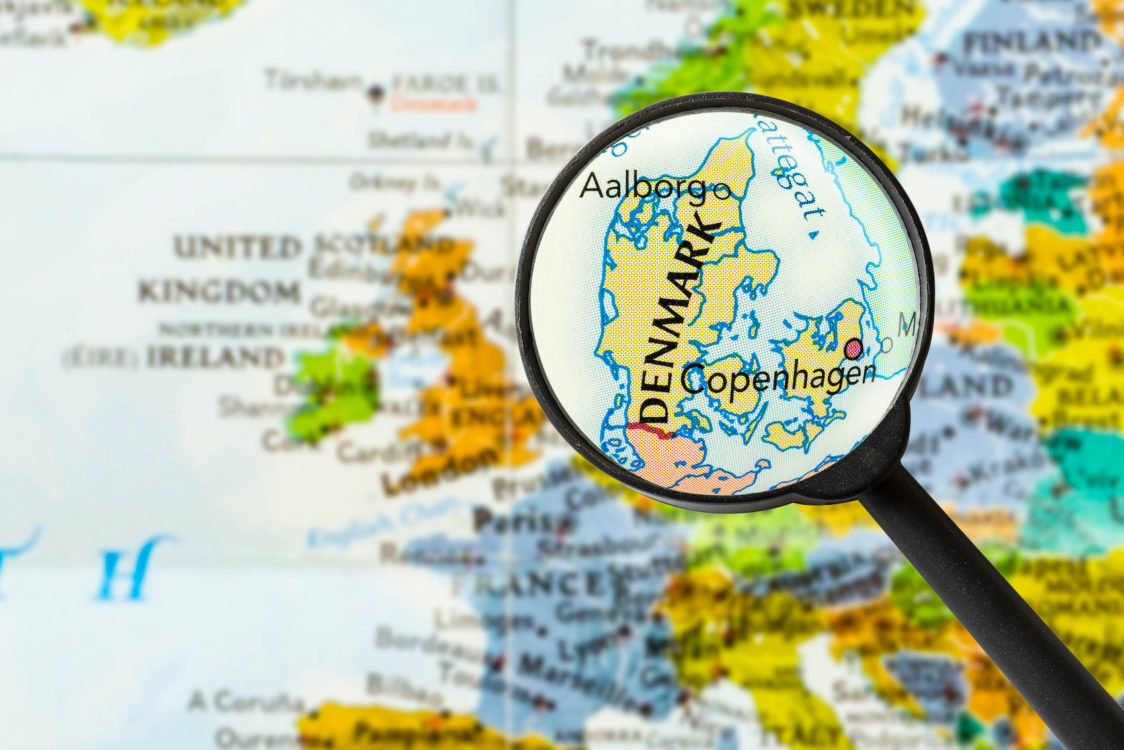
Political traditions often embraced by right-wing populists and ideals associated with left-wing populists have achieved harmony in Denmark, both in discourse and at the level of policy. Despite only a few populist parties in Parliament, populism increasingly dominates the party system and is embraced by almost all political actors through narratives and policies – mostly those regarding immigration, with the issue often framed in terms of secularism vs. religion.
Located in Northern Europe, Denmark, officially the Kingdom of Denmark, is a constitutional monarchy, with a symbolic monarch that has a limited role under the Danish constitution. Despite its well-functioning democratic institutions and an admirable model of an effective welfare state, Denmark is among the countries that has been altered by the powerful wave of European populism. In Denmark, it is fueled by strident nationalism and by the concerns about protecting Danish identity and heritage, particularly from immigrants from Muslim majority countries. Discursively constructed by populist parties such as the Danish People’s Party (DPP) – Dansk Folkeparti – since the early 2000s, today Danish populism has become an indivisible cultural ideology that projects Islam as not belonging to Europe. Through this ideology, populists advocate that measures must be undertaken to keep Muslims out of Europe.
Denmark is among the world’s most economically and socially developed countries. The World Happiness Index routinely ranks Denmark among the three “happiest” countries; Denmark ranks exceptionally well on all the main factors deemed necessary for happiness, such as income, social equality, freedom, generosity, health, and good governance (World Happiness Report). The country is a successful example of a well-functioning welfare state that offers a high degree of economic quality and security for its citizens while also having a liberal market economy that is capable of adapting to changing global conditions (Lykketoft, 2010). Denmark is also one of the five countries capable of meeting the UN’s goal for rich countries: contributing a minimum of 0.7% of gross national income for development assistance (Denmark Official). With its combination of a dynamic economy and social security, the Danish “flexicurity” model (Denmark Official) – that is, it is easy to hire workers and easy to let them go in accordance with changing market conditions – is a European success story and a viable example for other countries.
Despite all this positive news, Denmark has seen a recent rise in populist parties and movements, especially following the European migrant crisis of 2015. Although right-wing populism has admittedly been a visible part of Danish politics since the early 2000s, populists sent their first electoral shock to the Danish political class in the 2015 general election, when the DPP became the second largest political party in the country – the best result in the party’s history.
There are currently seven (7) populist political parties in Denmark.[1] Of these, the DPP is often seen as the greatest representative of a typical right-wing populist party with its emphasis on limiting immigration, especially from Muslim countries. Immigration has been its main ideological focus since its founding in 1995 by Pia Kjærsgaard. Its initial election manifesto emphasized, “the much-needed action” to assert the country’s “independence” and to preserve and promote the constitutional monarchy and Danish cultural heritage. This would guarantee the freedom of the Danish people “in their own country” (Danish People’s Party Official). Immigration from foreign nations, according to the party executives, has always been detrimental to the development of Danish culture- and Danish culture must be preserved and developed for Denmark to survive as a free and enlightened society (Danish People’s Party Official).
Moving a step further in 2008, Kristian Thulesen Dahl, the current leader of the party, openly declared the DPP as an “anti-Muslim” organization, although “not fanatical” (Berlingske, 2008). Once named “racist of the year” by the Swedish magazine, she, unsurprisingly, employs a similar hardline stance towards immigration. She and the party’s members believe multiculturalism and immigration have jointly been detrimental to Denmark and Danish culture (Financial Times, 2015). She believes there is no racism in Denmark and that it is only natural for people with Arabic-sounding names to have a harder time finding a job than those with Danish names (Macaraig, 2020). DPP executives are also skeptical towards the European Union (EU), repeatedly highlighting the need for tighter border controls to defy the single market’s free movement of labor.
Although the DPP existed long before the European sovereign debt crisis of the 2010s, its most significant electoral success came in 2015. Its vote totals usually ranged between 12 and 14 percent, but in 2015, the party secured 21.1% of the vote and 37 seats in Parliament.
The DPP’s influence forced the governing-coalition to adopt a harsher stance on immigration. In February 2016, the Danish Parliament passed a law allowing border police to seize cash and jewelry worth over 10,000 kroner from asylum seekers. Throughout 2016, some 117,600 kroner ($17,500) were seized from four different groups of refugees at Danish borders (BBC News, 2016). To boost integration, the Danish government proposed doubling penalties for certain crimes, such as vandalism or theft, in immigrant-dominated ghettoes (BBC News, 2018). And in September 2015, benefits for immigrants were cut almost in half, from around $1500 a month to $800 (The Guardian, 2015).
Founded in 1989 by three left-wing parties – the Communist Party of Denmark, the Left Socialist Party, and the Socialist Workers Party – The Red-Green Alliance (RD) is another populist party worth mentioning. The RD’s main ideological focus revolves around a left-leaning agenda including eco-socialism, anti-capitalism, and solidarity. The fight against social inequality and poverty, as well as expanding the welfare state, are also among the party’s main ideological priorities. The party is in favor of Denmark’s withdrawal from the North Atlantic Treaty (NATO). The RD has long been Eurosceptic; however, the recent “Brexit chaos” made them give up on their call for an imminent referendum to send Denmark out of the European Union – at least for the time being (Hvass, Rytgaard, 2019). Winning almost 6.9 percent of total votes in the 2019 general election, the RD obtained 13 seats in Parliament.
In terms of civil and political liberties, Denmark is a free country (Freedom House, 2019). Liberties are strongly respected, and Danish voters enjoy regular and competitive multiparty elections. The country often dominates rankings of the world’s best-performing democracies. It scores highly in many categories such as personal freedom, LGBTQ+ rights, and religious liberties (The Local, 2015). Despite this, Denmark is struggling to ensure fundamental rights for immigrants.
Although the DPP suffered a major defeat in the 2019 general election, losing its influence in the Danish parliament, it has already played a significant role in poisoning the political mainstream with its anti-immigration obsession – a hallmark of European populist movements. Today in Denmark, political traditions embraced by right-wing populists and the ideals associated with left-wing populists have achieved harmony, both in discourse and at the level of the actual policy. Despite only a few populist parties in Parliament, populist rhetoric increasingly dominates the party system and is embraced by almost all political actors through narratives and policies – mostly those regarding immigration. The ruling Social Democratic Party (SDP), under its leader Mette Frederiksen, has broken from its past vison of an inclusive left, adopting a tough stance on immigration and potentially squeezing out the DPP (Financial Times, 2019).
While the SDP also believes in strong social welfare programs and labor union rights as well as significant climate change commitments, it has become a staunch anti-immigration party. Frederiksen is also in favor of keeping a ban on Muslim women wearing burqas, as well as forcing the children of “non-Western” immigrants to take lessons to learn “Danish values” (The Lily News 2019). Acknowledging the widespread anti-immigrant shift in Danish politics, Peter Skaarup, the DPP’s Parliamentary leader, said in the aftermath of the 2019 election that when it comes to immigration, “we have seen other parties wanting the same policies. The Social Democrats certainly gained some older voters, their traditional supporters back from us” (Financial Times, 2019). The anti-immigrant policies have achieved their desired ends: according to Mattias Tesfaye, the Minister for Immigration and Integration, for the first time in a decade, more refugees left Denmark than arrived in 2019 (Hamilton, 2020). Calling the recent figures “lovely numbers,” Tesfaye said net immigration to the country has steadily fallen since 2015.
July 9, 2020.
References
— (2002). “The Party Program of the Danish People’s Party.” The Danish People’s Party. October 2002, https://danskfolkeparti.dk/politik/in-another-languages-politics/1757-2/ (accessed on July 5, 2020).
— (2008). “Thulesen Dahl erklærer DF antimuslimsk.” Berlingske. March 14, 2008, https://www.berlingske.dk/politik/thulesen-dahl-erklaerer-df-antimuslimsk (accessed on July 5, 2020).
— (2015). “Danes have world’s most personal freedom: report.” The Local. August 24, 2015, https://www.thelocal.dk/20150824/denmark-is-worlds-fourth-freest-nation-report (accessed on July 5, 2020).
— (2015). “Denmark to cut immigrant benefits in half.” Financial Times. July 1, 2015, https://www.ft.com/content/5fe8095c-1ffb-11e5-aa5a-398b2169cf79 (accessed on July 5, 2020).
— (2015). “Denmark to slash benefits for asylum seekers in attempt to deter refugees.” The Guardian. July 1, 2015,https://www.theguardian.com/world/2015/jul/01/denmark-slash-benefits-asylum-seekers-refugees (accessed on July 5, 2020).
— (2016). “Denmark’s ‘migrant confiscation law’ yields little cash.” BBC News. November 4, 2016, https://www.bbc.com/news/world-europe-37871792 (accessed on July 5, 2020).
— (2017). “World Happiness Report,” March 20, 2017, https://worldhappiness.report/ed/2017/ (accessed on July 5, 2020).
— (2018). “Denmark plans double punishment for ghetto crime.” BBC News. February 27, 2018, https://www.bbc.com/news/world-europe-43214596 (accessed on July 5, 2020).
— (2019). “Danish populists’ support collapses but their policies live on.” Financial Times. June 6, 2019, https://www.ft.com/content/4d7b8d1a-883f-11e9-97ea-05ac2431f453 (accessed on July 5, 2020).
— (2019). Freedom House. “Freedom in the World 2019 Narrative Report for Denmark,” https://freedomhouse.org/country/denmark/freedom-world/2020 (accessed on July 5, 2020).
— (2019). “Trump canceled his trip to Denmark over Prime Minister Mette Frederiksen’s comments. But the two agree on one thing: immigration.” The Lily News. August 21, 2019. https://www.thelily.com/trump-canceled-his-trip-to-denmark-over-prime-minister-mette-frederiksens-comments-but-the-two-agree-on-one-thing-immigration/ (accessed on July 5, 2020).
— (2020). “Danish society and the business environment.” Denmark Official. https://denmark.dk/society-and-business(accessed on July 5, 2020).
— (2020). “Denmark and the World.” Denmark Official. https://denmark.dk/society-and-business/denmark-in-the-world(accessed on July 5, 2020).
Hamilton, Ben. (2020). “Danish News Round-Up: More refugees leaving Denmark than arriving,” CPH Post, May 4, 2020, http://cphpost.dk/?p=113808 (accessed on July 5, 2020).
Hvass, Jesper, Nikolaj Rytgaard. (2019). “Enhedslisten parkerer krav om dansk udmeldelse af EU efter britisk kaos,” Jylland Posten, March 14, 2019. https://jyllands-posten.dk/indland/ECE11250051/enhedslisten-parkerer-krav-om-dansk-udmeldelse-af-eu-efter-britisk-kaos/(accessed on July 5, 2020).
Macaraig, Ayee. (2020). “Danish News Round-Up: No racism in Denmark, contends Pia Kjærsgaard,” CPH Post, June 23, 2020, http://cphpost.dk/?p=115186 (accessed on July 5, 2020).
Lykketoft, Mogens. (2010). “The Danish Model – a European success story,” Arbejderbevægelsens Erhvervsråd. February 26, 2010, https://www.ae.dk/publikationer/the-danish-model-a-european-success-story.
[1] The Danish People’s Party (Dansk Folkeparti); The Red–Green Alliance (Enhedslisten – De Rød-Grønne, literally Unity List – The Red–Greens); The New Right (Nye Borgerlige); The Progress Party (Fremskridtspartiet); The Communist Party of Denmark (Danmarks Kommunistiske Parti); Hard Line (Stram Kurs); Socialist Workers Party (Socialistisk Arbejderparti).




